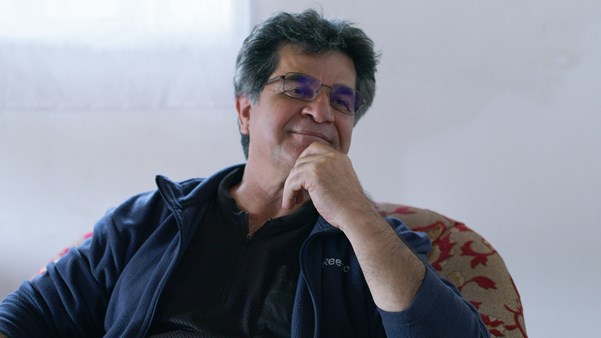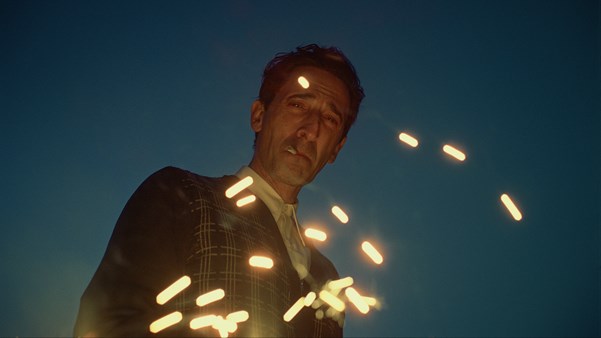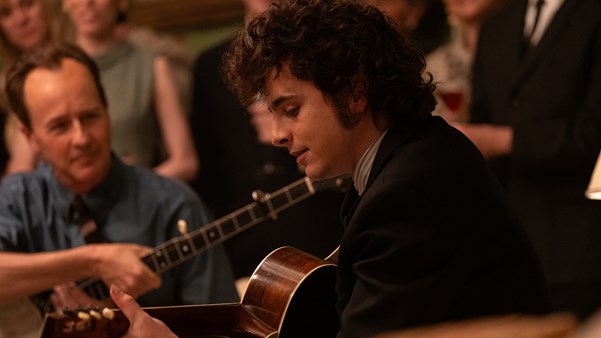Oscar-nominated thriller The Seed of the Sacred Fig, by exiled Iranian director Mohammad Rasoulof, is the latest film to employ the genre as a means of exploring contemporary events – and criticising social ills. By Ian Haydn Smith

Iman (Missagh Zareh) has a new job, albeit not the one he desired. Having long held ambitions to be a judge, he finds himself appointed to the lower position of inspector, responsible for interrogation and signing off on punishments that sometimes seem little more than the whims of his superiors, even when their judgements are fatal. With his new role, Iman decides that his two daughters, Rezvan (Mahsa Rostami) and Sana (Setareh Maleki), should finally know what he does – so unpopular is his position that public knowledge of it could place his whole family in danger. What he hadn’t expected, however, is for the two young women to be more aligned with the generation that desires radical change in their society, their opinions echoing the rising number of demonstrations on Tehran’s streets. This stark contrast in perspectives sets in motion the rapidly escalating conflict between Iman and his family.

The domestic drama of The Seed of the Sacred Fig plays out against the wider canvas of Women, Life, Freedom movement (or Jina Revolution) that spread throughout Iran in September 2022. It was sparked by the suspicious death in custody of Mahsa (Jina) Amini, a 22-year-old Kurdish-Iranian who had been detained by the morality police for wearing her hijab too loosely. The demonstrations saw hundreds of protestors killed – and thousands injured – as the authorities attempted to crack down on dissent. In Rasoulof’s film, Rezvan and Sana have access to a VPN on their smartphones that allows them to secretly see what’s happening on the streets outside their closeted apartment. Their home becomes a prison as Iman’s rule in the household reflects that of his workplace, where he processes the multitudes who believe that Iranian women should no longer be oppressed.
The Seed of the Sacred Fig plays out like a parable imbued with the tension of a political thriller, with contemporary resonances that give it a sense of being in the moment. As such, it bears comparison with a number of recent films that successfully sought a way to capture contemporary events through the prism of the thriller genre.
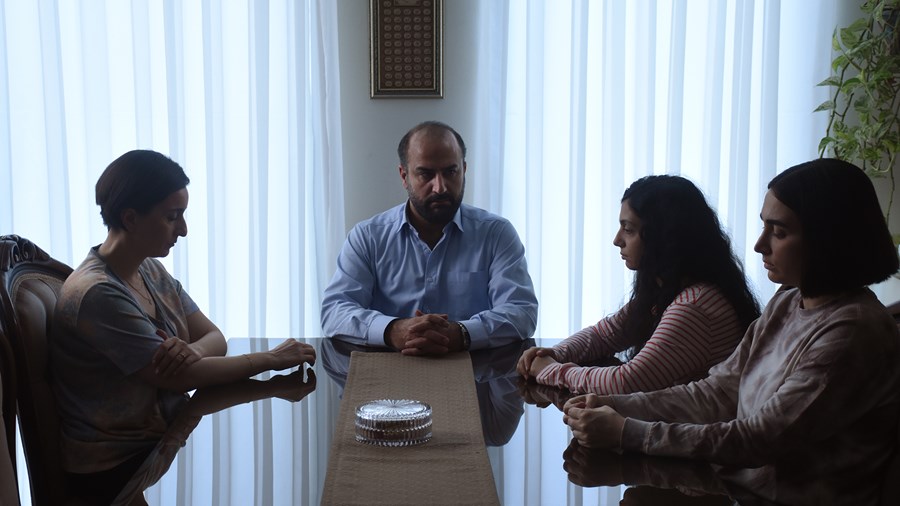
The Seed of the Sacred Fig (2024)
Some five years after the 2011 Arab Spring saw the fall of Egyptian President Hosni Mubarak’s regime – and the ensuing battle for power between the country’s military establishment and the Muslim Brotherhood – Mohamed Diab’s Clash (2016) presented a potent portrait of division along political, cultural and ideological lines. It unfolds almost entirely inside the claustrophobic space of a police truck, where two journalists and a group of supporters for both the military and the Brothers are detained, having been randomly arrested by the police at a demonstration. They witness the surrounding chaos through the vehicle’s small, barred windows, while tensions inside the van reach boiling point. It’s made clear that all the participants were once aligned in their desire to remove Mubarak from power, but like so many previous conflicts around the world (such as the failure of the left to defeat fascist General Franco in 1930s Spain, which was memorably dramatised by Ken Loach in 1995’s Land and Freedom), contrasting ideologies soon lead to unresolvable divisions.
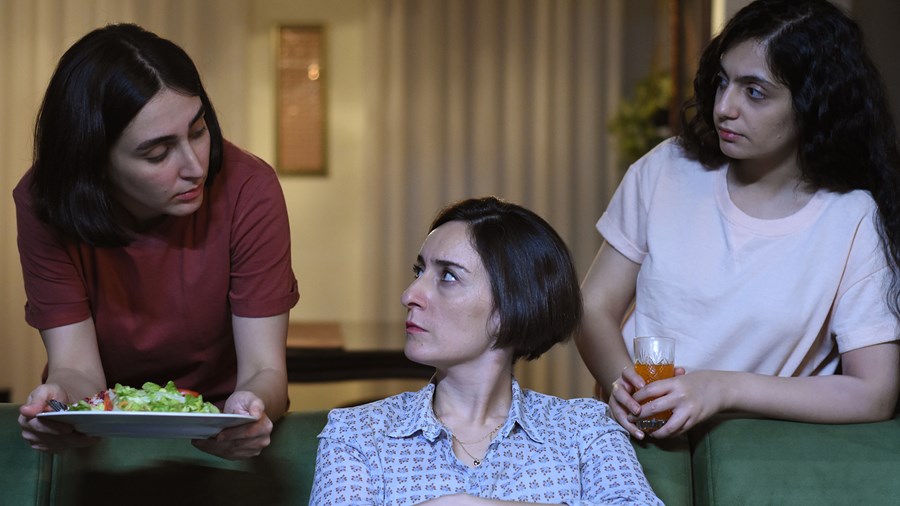
The Seed of the Sacred Fig (2024)
A severity of space also plays a significant role in Philippe Van Leeuw’s suffocatingly tense Insyriated (2017). Set in a Damascus apartment shortly after the Syrian uprising tore the country asunder, it stars an impressive Hiam Abbass as Oum Yazan, a woman desperate to protect her two daughters, son, father-in-law and bombed-out neighbours from the outside world. A sniper has trapped them in their dilapidated apartment block, but there is also the constant threat of Assad’s military forces – both its armoury and the brutality of its men. The film was produced while conflict still raged in the country, and the combination of melodrama and suspense emphasises the agony of innocents trapped in a world they cannot easily escape, yet face too great a danger if they remain.
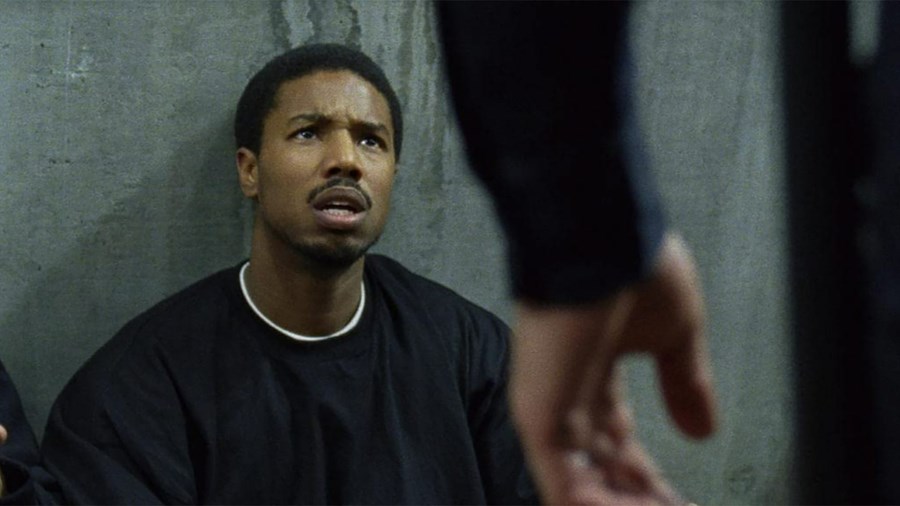
Fruitvale Station (2013)
Ryan Coogler’s Fruitville Station (2013) is a fine example of a drama whose relevance has only increased as a result of subsequent events. The deaths of Black men in the custody of the US police was hardly new when Coogler directed his debut feature about the 2009 murder of Oscar Grant at the hands of a San Francisco transit cop. However, high-profile cases over the course of the next decade only heightened the film’s power, helping it play a role in the rise of the Black Lives Matter Movement. 2018’s Blindspotting and The Hate U Give also approached the subject, while Spike Lee’s 2020 short 3 Brothers drew parallels between the police-caused death of the character Radio Raheem in his 1989 drama Do the Right Thing with footage of the deaths of Eric Garner in 2014 and George Floyd in 2020.
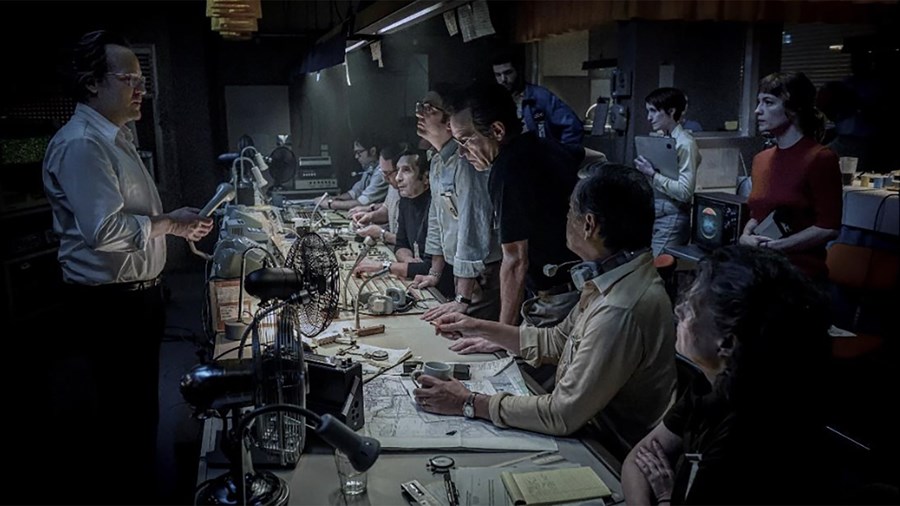
September 5 (2024)
Tim Fehlbaum’s September 5 (2024), which details the events around the 1972 hostage situation at the Munich Olympics, when the militant Palestinian faction Black September held the Israeli athletics team to ransom, is another recent movie whose relevance to the present day is all too clear. The film examines the ethics behind such coverage – the onus that journalists should acknowledge and embrace when relaying to audiences the complexity and political ramifications of a situation, and the consequences of their work. Once again, the film filters the story through the prism of a thriller. And though it may seem a world away from Rasoulof’s drama, both September 5 and The Seed of the Sacred Fig are successful in capturing the intensity of the situation their characters find themselves in, as well as acknowledging the gravity that comes with telling such a story. Rasoulof, in particular, has paid a hefty price for the films he has chosen to make.
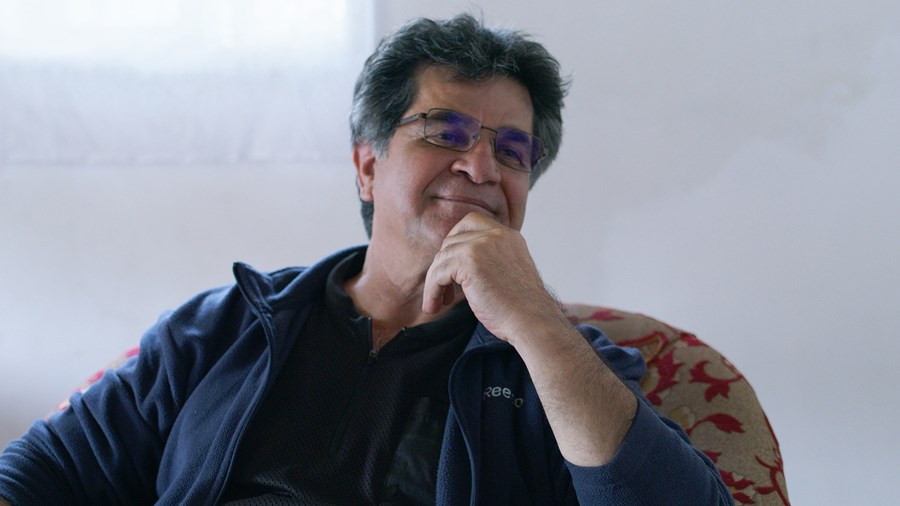
No Bears (2022)
Like fellow Iranian filmmaker Jafar Panahi – the acclaimed director of Taxi Tehran (2015), Three Faces (2018) and No Bears (2022) – Rasoulof and his work have often fallen foul of domestic censors and prosecutors. His films are critical of the government and its policies, with issues ranging from the censorship of artists (Manuscripts Don’t Burn, 2013) and the corrupting nature of coercive regimes (A Man of Integrity, 2017) to the limits to freedom of expression in the face of the direst of punishments (There Is No Evil, 2020). In 2010, following the release of his first four, highly critical features, Rasoulof was sentenced to six years, which was eventually reduced to 12 months. He had his passport confiscated in 2017, received a one-year sentence in 2019 and another in 2020. A subsequent sentence was passed in 2023.
On each occasion he was banned from filmmaking, yet continued to do so. Prior to the 2024 Cannes premiere of The Seed of the Sacred Fig (which received a Special Jury Prize), Rasoulof was sentenced to eight years in prison as well as flogging, a fine and the confiscation of his property. Thankfully, the sentence was passed in absentia; Rasoulof had managed to escape Iran, attending the film’s premiere at the festival, and currently resides in Germany. Few filmmakers have risked so much to bring their work to audiences and few films carry the urgency and import of Rasoulof’s (and Panahi’s) work. But beyond his country’s borders, The Seed of the Sacred Fig is an essential reminder of the everyday dangers of life in any authoritarian society, and how easy it is for those in a democratic society to blithely ignore, or take for granted, the smallest of freedoms that could one day be at risk.
WATCH THE SEED OF THE SACRED FIG IN CINEMAS


